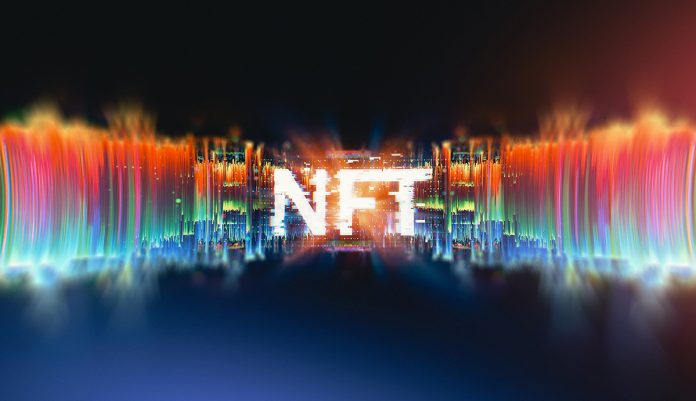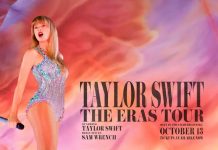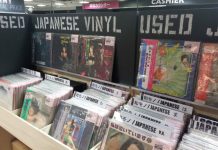By Polina Bogomolova
The abbreviation “NFT” has been hitting the headlines all around the globe over the past year. We continue to hear more and more stories about its usage by artists and the impressive amount of money they’ve been able to earn. But what exactly is an NFT and what’s all the hype?
NFT stands for “non-fungible token”, meaning a unique file which allows you to attach a digital consumer good, such as audio, visual art, video, GIF, etc. In the music industry, an NFT can be imagined as a unique limited edition of a piece of merch, signed CD or Vinyl. It’s “one of a kind,” amazingly rare and exclusive. It’s something intangible, impossible to touch but can still be experienced. The more NFTs that are used by artists, the more ideas about what an NFT can represent. For example: VIP backstage experiences for future shows, visualizers, a dinner with an artist and so much more.
It turns out that this technology is not as new as most people think. Elizabeth Howcroft claims that the first NFT was created in 2014, but the trend took 7 years to capture the general public’s attention.
Before the pandemic, the main revenue stream for music artists was in live performances and touring. For example, according to Billboard’s Annual Money Makers Report for 2019, even the top-5 highest-paid musicians earned the more than half of their revenue touring.
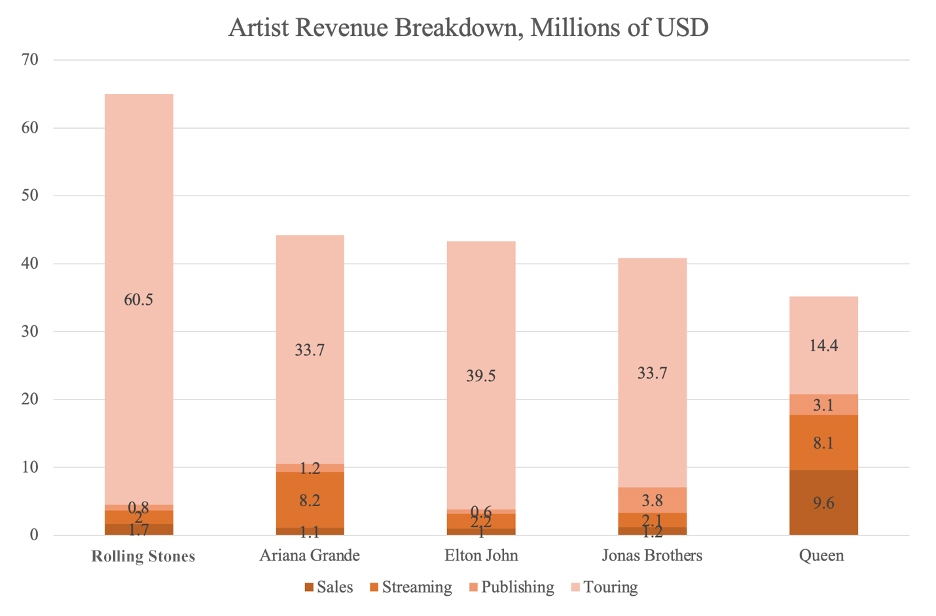
Relying on the chart above, on average 76% of the revenue earned by the named artists came from touring. It’s safe to say by analyzing this cross-section of artists, that out of the entire music industry, the majority of revenue comes from touring.
When CDs stopped being the music medium of choice, (thanks to MP3 files and streaming services), artists started depending on royalties received from streaming, which didn’t leave much of a “financial cushion” for them to rely on unless they are internationally popular and have millions of fans. The chart below shows that an artist gets paid less than a penny per single stream of his or her song:
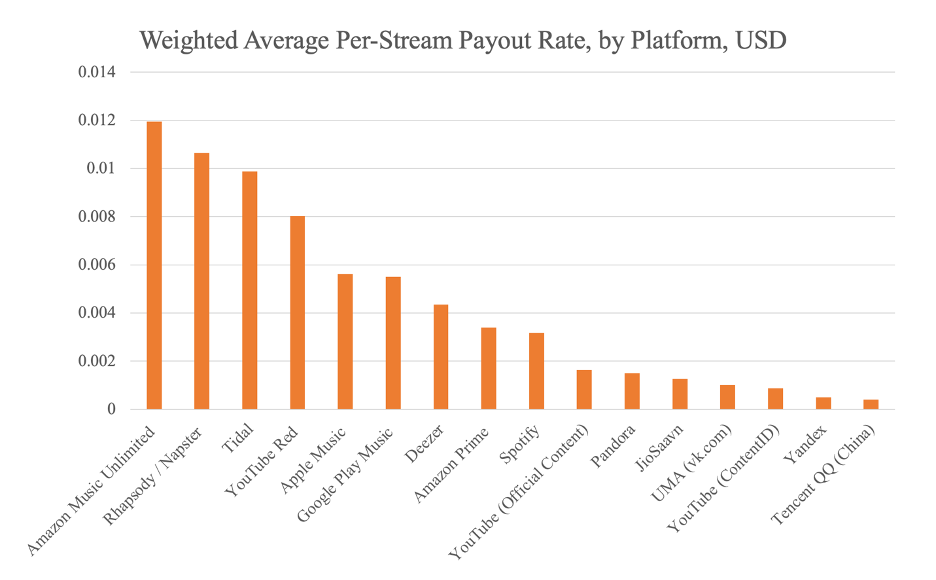
In March 2020, COVID-19 knocked at the door of people’s homes and locked everyone indoors for more than a year. This included musicians who depended on live-performances and touring. It took the music industry time to pivot and come up with “live-event substitutions” such as livestream shows. However, it still couldn’t replace the amount of income earned from live events. This was the catalyst that brought NFTs to the forefront.
Sitting at home, artists from all creative fields (musicians, painters, photographers, etc.) discovered that offering their works through NFT market places allowed them to collect the royalties directly, without paying commissions to “middlemen” (such as labels, managers, streaming services, venue providers, etc.), which seemed like a perfect solution to the lack of earnings from touring. Also, the average price of an NFT starts at hundreds of dollars, which is way more than the average earnings from streaming. Moreover, it allows artists to collaborate with each other and sell art & music together in one package. As NFT platforms started to be used in the creative industries more and more, famous singers, rappers and DJs stepped in and supported the trend, which is one of the reasons why NFTs got so much attention.
Indeed, after announcing NFT collections by The Weeknd, Grimes, Kings of Leon, Steve Aoki, A$AP Rocky and others, a few hundred thousand fans ran to explore it, looking to own exclusive art and special unreleased music from their favorite artists.
NFTs helped musicians to earn millions of dollars – according to Water + Music, music creatives gained $70.5 million since February 2021 to April 2021 (including $2.29 million from The Weekend, $2 million from Kings of Leon, $5 millions from Grimes and 4.25$ million from Steve Aoki)
From an artist’s point of view, an NFT is a great tool to earn money and sell music as well as collaborate with creatives from different fields. It gives them an opportunity to connect with fans directly and not to worry about a social media algorithm. Artists have long had to fit their marketing to a social media algorithm in order to get more attention and consequently more fans and publicity. With an NFT, it is enough to have 5 loyal buyers for an artist to receive a stable source of financial income.
Despite its advantages, NFTs have its cons. To obtain a piece of art or audio by your favorite musicians, you should have hundreds to thousands of dollars ready to spend in order to get the unique piece and rights of ownership (for example, The Weeknd’s NFT “The Source” were sold for $469,420). This poses an obvious, glaring problem: NFTs aren’t affordable for a majority of fans, even if they would love to connect with their favorite artists. In its early days, NFTs are platforms for art collectors and millionaires.
Moreover, what almost no one thinks about is the environmental impact NFT has on the planet. According to Jiahui Qiu, an average transaction for NFTs has a carbon footprint of about 48kg. It means that in order to create, sell and get paid for one NFT, it takes a huge amount of computer power which affects Earth. The reason for that is a high maintenance of a blockchain such as Ethereum and Bitcoin, since the crypto currency is the main payment option for an NFT. Not only is it a serious problem for the environment, but the usage of NFTs can affect an image of an artist as a person who ignores such issues as climate change, too.
Another issue with NFT is a piracy. Even though NFT collections have a limited number of pieces and those who win in a bidding auction, get the right to own a piece of a collection exclusively, are not the ones who can have it. Officially, the person who buys NFT has it in ownership. However, in those 20 minutes of an online auction and showing of a collection, literally every user registered on NFT platform has a right to see the NFT and screen record it. In this way, NFTs aren’t protected from piracy at all which creates a question – why would someone buy it if they can easily access and record it on their devices for free? Why would people want to buy an NFT if practically, they won’t have exclusive ownership because everyone can save a pirate copy for free? Until it is a collector or someone who really wants to have a “status” of ownership, NFT loses any sense for others. Especially, with such high prices which only provoke to get a pirate copy.
Also, the NFT platform might be an opportunity for artists to earn money from unreleased music which is not going to be in an official EP or LP album. For example, The Weeknd and A$AP Rocky presented their unreleased tracks as a part of their NFT collection for an exclusive right to own the songs which will never be distributed on streaming services and anything else. But the real question is, if they sell unreleased music on NFT, does it mean they just try to earn money from unfinished songs which will never become a hit? Because if it had obvious potential to be a hit, they would share it with the world.
Obviously, there are still a lot of questions about non-fungible tokens and its legal side as well. Artists and those who buy NFTs should totally understand what exact rights are being sold and obtained in exchange for money.
For example, if a musician collaborates with a graphic designer and sells a GIF with a sound, he or she should receive permission to use the audio in NFT from every person/label that has rights on this track. As we can see, “middlemen” still applies between artists and their royalties.
Moreover, NFT buyers should know that if they buy a NFT, which, for example, represents a GIF with a sound, they get an ownership for this exact piece of NFT, a GIF, not a whole song which is used in GIF. Imagine it as a CD – a person has a copy but has no rights for original master recording.
There are a lot of reasons for NFT to be costly due to expensive pre-production costs (registration and transaction fees, copyright agreements, contracts, etc.) and an auction system, but experts promise that in the future the process will get much better. NFTs will become cheaper and affordable for everyone, people will be able to buy one piece together in mutual ownership and non-fungible tokens will be recognized by the majority of people.
However, the environmental question still stays without an answer as well as the success of NFTs in the future. Indeed, nowadays, it leaves more questions than answers. There is no doubt that NFT will stay for a long time if not forever, it will be used more, however, will it provoke a real revolution in the music industry? This is still doubtful and questionable.
References
Christman, E. (2019). Money Makers: The Highest-Paid Musicians of 2019. In Billboard. Retrieved May 31, 2021, from https://www.billboard.com/articles/business/9434831/billboards-money-makers-the-highest-paid-musicians-of-2019
Howcroft, E. (2021, June 1). Sotheby’s to Sell ‘First’ NFT in Online Auction. In U.S. News. Retrieved June 2, 2021, from https://www.usnews.com/news/technology/articles/2021-06-01/sothebys-to-sell-first-nft-in-online-auction
Sanchez, D. (2017, July 17). The Richest Artists In the World Make 75%+ of Their Money from Touring. In Digital Music News. Retrieved June 2, 2021, from https://www.digitalmusicnews.com/2017/07/17/artists-touring-revenue/
Pastukhov, D. (2019, June 26). What Music Streaming Services Pay Per Stream (And Why It Actually Doesn’t Matter) . In Soundcharts. Retrieved June 1, 2021, from https://soundcharts.com/blog/music-streaming-rates-payouts
Williams, C. (2021, April 4). The Weeknd Raises Over $2 Million in First NFT Auction. In Crypto Briefing. Retrieved June 1, 2021, from https://cryptobriefing.com/the-weeknd-raises-over-2-million-in-first-nft-auction/#:~:text=The%20Weeknd%20Gets%20Tokenized,from%20his%20first%20NFT%20collection
Moore, S. (2021, March 12). Kings Of Leon have generated $2million from NFT sales of their new album. In NME. Retrieved June 1, 2021, from https://www.nme.com/news/music/kings-of-leon-have-generated-2million-from-nft-sales-of-their-new-album-2899349#:~:text=Kings%20Of%20Leon%20have%20generated%20over%20%242million%20(%C2%A31.4,’When%20Yo
Grech, A. (2021, March 1). Grimes Makes Over $5 Million in Sales from Non-Fungible Tokens Crypto Art. In mxdwn.com. Retrieved June 1, 2021, from https://music.mxdwn.com/2021/03/01/news/grimes-makes-over-5-million-in-sales-from-non-fungible-tokens-crypto-art/#:~:text=Menu-,Grimes%20Makes%20Over%20%245%20Million%20in,Non%2DFungible%20Tokens%20Cr
Harumi, L. (2021, April 7). THE WEEKND SELLS NFT COLLECTION FOR OVER $2 MILLION. In VMAN. Retrieved June 1, 2021, from https://vman.com/article/the-weeknd-sells-nft-collection-for-over-2-million/
Heffler, J. (2021, March 10). STEVE AOKI ON THE FUTURE OF DIGITAL ART: “NFTS ARE A JUGGERNAUT THAT CANNOT BE STOPPED”. In EDM. Retrieved June 1, 2021, from https://edm.com/gear-tech/steve-aoki-nft-sells-for-4-25-million
Qiu, J. (2021, April 20). What Are NFTs, And What is Their Environmental Impact? In https://earth.org/nfts-environmental-impact/#:~:text=Digiconomist%20estimates%20a%20single%20Ethereum,footprint%20of%20about%2048kg%20CO2. Retrieved June 1, 2021, from https://earth.org/nfts-environmental-impact/#:~:text=Digiconomist%20estimates%20a%20single%20Ethereum,footprint%20of%20about%2048kg%20CO2


